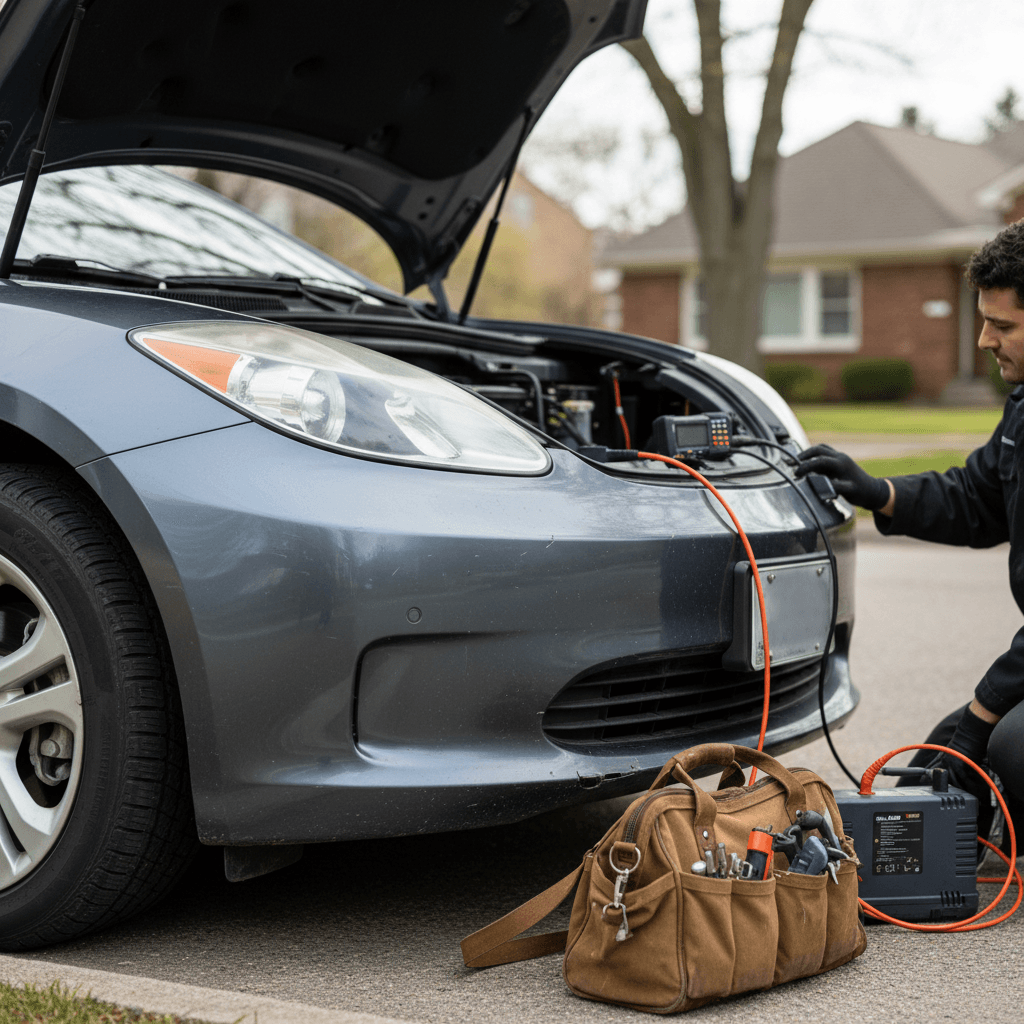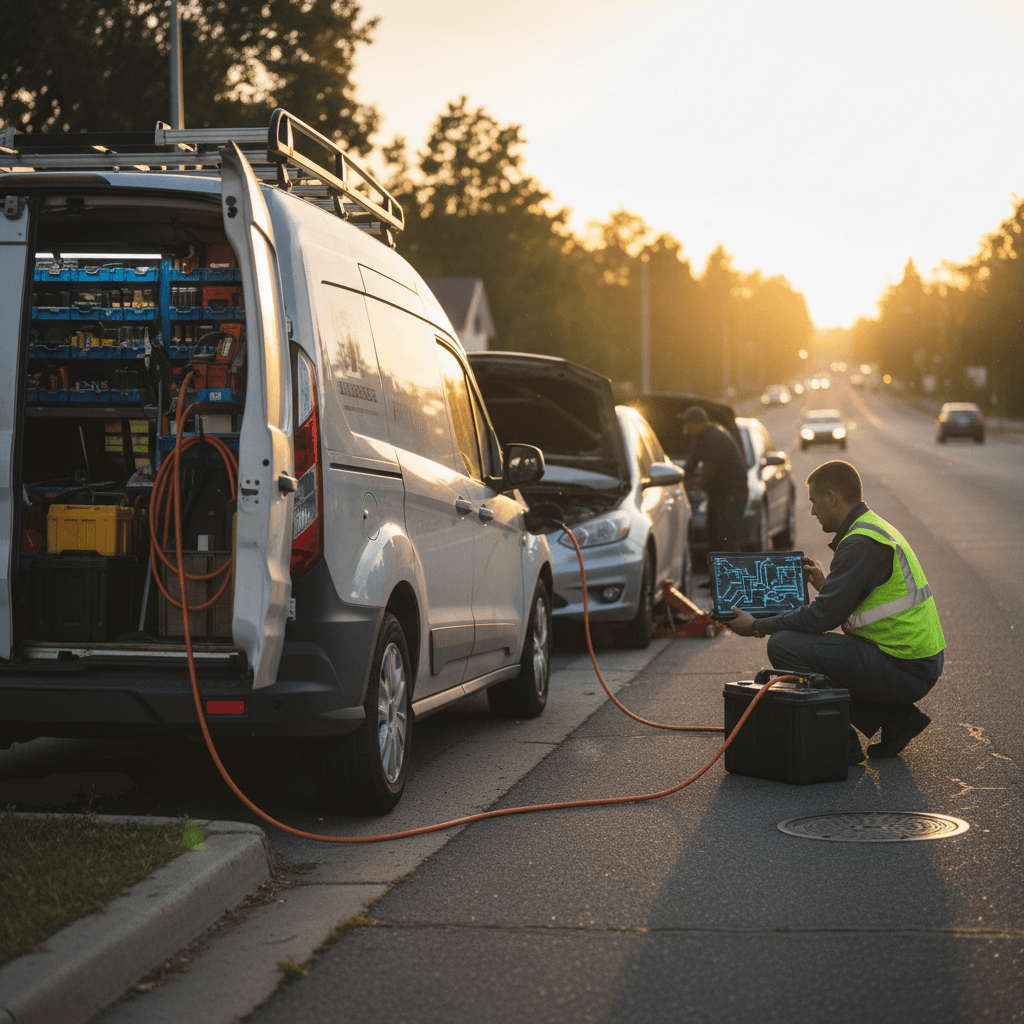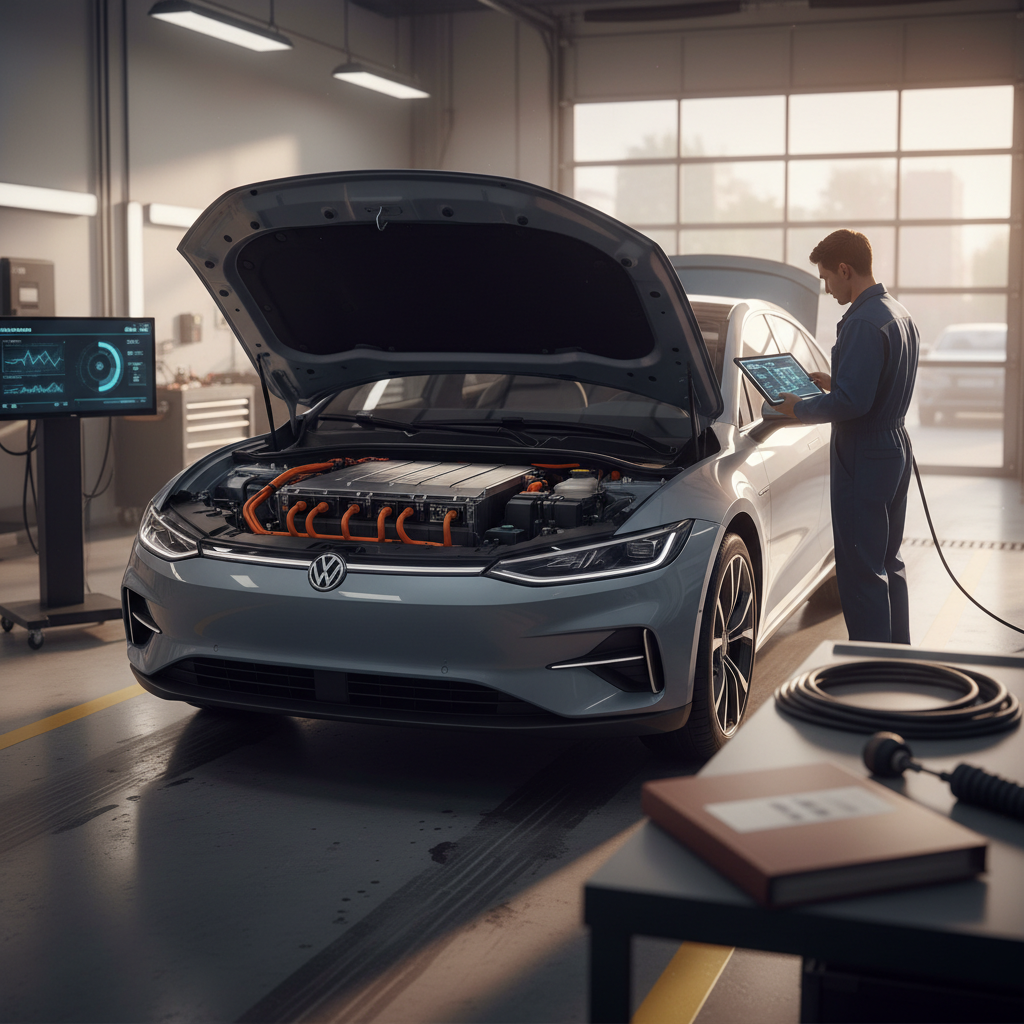You don’t usually Google “nearest mobile mechanic near me” on a calm Sunday afternoon. You search it when the car won’t start, a warning light pops up, or you simply cannot afford to sit in a shop waiting room for half a day. The good news: mobile mechanics have grown up, especially for EV and hybrid owners, and there are smart ways to find fast, safe help right where your car is parked.
Mobile mechanics in one sentence
Why “mobile mechanic near me” is booming in 2025
Across the U.S., demand for on‑site auto repair has grown alongside delivery, telehealth, and other services that come to you. Drivers are busier, many families have only one car, and EV adoption is rising, so being without your vehicle for days at a shop is a big deal. On top of that, modern cars are packed with electronics that require scan tools, not just wrenches. Mobile units today often carry the same diagnostics you’d find in a brick‑and‑mortar shop.
Why more drivers are choosing mobile mechanics
Good fit for used‑car owners
What a mobile mechanic can (and can’t) fix
When you search for the nearest mobile mechanic near you, you’re usually trying to answer one question: can they actually fix my problem on‑site, or will I end up needing a tow anyway? The honest answer: mobile mechanics are great for diagnostics and small‑to‑medium repairs, but they’re not a rolling full‑size shop.
Jobs mobile mechanics usually handle well
- No‑start diagnostics – battery, starter, key/immobilizer, basic wiring checks.
- Brake pads & rotors – as long as there’s enough space to work safely.
- Fluid changes and filters – oil (for ICE and hybrids), coolant, cabin filters.
- Battery service – 12V battery testing and replacement on gas, hybrid, and EVs.
- Check‑engine light diagnostics – scan‑tool troubleshooting and minor repairs.
- Tires – puncture repairs, rotations, or swapping to a spare.
Jobs better suited for a shop
- Major engine or transmission work – rebuilds, replacements, or anything needing a lift.
- Structural or frame repairs – collision damage, welding.
- High‑voltage battery replacement on EVs – usually requires specialized lifting equipment and a controlled environment.
- Advanced alignment and ADAS calibration – radar, lidar, and camera calibration equipment lives in shops.
- Rust‑seized components that may need heat, presses, or heavy tools.
Know the limits
How to find the nearest mobile mechanic near you
There’s no single national “nearest mobile mechanic” hotline in the U.S., but there is a simple process you can follow from your phone to get someone competent and close, without panic‑booking the first ad you see.
Three quick ways to locate a nearby mobile mechanic
Use at least two sources to avoid relying on a single review or ad.
1. Use map apps
Open Google Maps or Apple Maps and search terms like “mobile mechanic near me”, “mobile auto repair”, or “EV mobile mechanic”.
- Filter by rating (ideally 4.5★+ with multiple recent reviews).
- Check photos and website links for proof of real operations.
2. Check review platforms
Look at Google, Yelp, or local Facebook/Nextdoor groups.
- Prioritize technicians with reviews mentioning on‑time arrival and clear communication.
- Scan for repeat complaints about no‑shows or surprise fees.
3. Call and ask direct questions
Once you’ve short‑listed two or three, call or message them.
- Confirm they serve your location today.
- Ask if they work on your specific make, model, and powertrain (gas, hybrid, or EV).
- Request a ballpark price range before they roll a truck.
Script you can literally read from your phone
Special considerations for EV and hybrid owners
If you drive an EV or hybrid, you can’t assume every mobile mechanic is qualified, or insured, to touch high‑voltage systems. Many are excellent with 12V batteries, tires, and brakes but have limited training on battery management systems, inverters, and charging hardware. You want someone who clearly advertises EV or hybrid experience and uses proper safety gear.
What a good EV‑savvy mobile mechanic offers
- EV/hybrid training or certification mentioned on their site or listings.
- High‑voltage safety practices – insulated tools, PPE, and lockout procedures.
- EV‑specific diagnostics – ability to read battery and inverter codes, not just generic OBD‑II.
- On‑site 12V and low‑voltage repairs – common EV issues like 12V failures, stuck charge ports, or sensor faults.
- Partnerships with EV‑focused shops for anything that must go on a lift.
When you should lean on EV roadside specialists
- Your main traction battery is fully depleted on the road and you need mobile charging or a tow to a nearby station.
- You see high‑voltage or battery safety warnings on the dash.
- The car refuses to go into gear with multiple EV system errors.
- You’re unsure if it’s safe to stand near or touch the vehicle after impact or flooding.

High‑voltage safety first
What the nearest mobile mechanic typically costs
Pricing varies by market, time of day, and the work itself, but most U.S. mobile mechanics charge a service or call‑out fee plus labor and parts. For many drivers, the math works out because you avoid towing, lost time at the shop, and sometimes hotel or rideshare costs if you break down away from home.
Typical cost ranges for mobile mechanics vs. alternatives
These are ballpark ranges for the U.S. in 2025. Always confirm local pricing when you call.
| Service type | What it includes | Typical range (USD) | When it makes sense |
|---|---|---|---|
| Mobile mechanic visit | Call‑out fee + 1–2 hours of labor for diagnostics or a minor repair | $150–$350+ | Great for no‑start issues, basic repairs, and driveway diagnostics. |
| Mobile brake job (per axle) | Pads and labor; rotors may add cost | $250–$500+ | When you want brakes done at home or work without shop downtime. |
| Tow to shop | Hook‑up fee + mileage | $150–$300+ | When major work is clearly needed or the car is unsafe to work on roadside. |
| Shop diagnostics | Scan‑tool check and basic inspection | $120–$200+ | Good if your car is already at a trusted shop or needs heavy equipment. |
| Mobile EV roadside charge | On‑site charge to add limited range to reach a station | ~$150–$200+ | Useful if you’ve misjudged range and just need to reach a charger. |
Use this table as a directional guide, not a quote, actual prices depend on your location, vehicle, and the specific repair.
Price vs. value
Safety checklist before you book a mobile mechanic
Convenience should never come at the expense of safety, yours or your vehicle’s. Before you lock in the nearest mobile mechanic, run through this quick checklist so you’re inviting the right person to your driveway or breakdown location.
10‑point safety and quality checklist
1. Confirm they’re licensed and insured
Ask whether they’re licensed in your state and carry liability and garage‑keepers insurance. A legitimate provider will answer this quickly and clearly.
2. Ask about ASE or brand certifications
Look for industry credentials or brand‑specific training, especially for EVs and hybrids where high‑voltage systems are involved.
3. Verify they work on your vehicle type
Say clearly whether your car is gas, hybrid, or fully electric and confirm they’re comfortable with that platform before they dispatch a truck.
4. Get a clear explanation of fees
Ask about the call‑out fee, hourly labor rate, and how they bill parts. Request a text or email with the estimate whenever possible.
5. Check recent reviews (last 3–6 months)
Reviews from several years ago don’t tell you much about how they operate today. Filter for the most recent feedback in your area.
6. Share your exact location and surroundings
Explain whether you’re on a shoulder, in a parking garage, or on a busy road. Technicians need to know if it’s safe to work where the car sits.
7. Confirm they can issue an invoice or work order
Ask whether you’ll receive a digital or paper invoice showing labor, parts, and any warranty so you have a record for future resale or warranty claims.
8. Ask about parts and warranty
Do they use OEM, aftermarket, or customer‑supplied parts? How long is their warranty on labor and components?
9. Arrange a safe meet‑up plan
If you’re waiting in a public place, agree on a visible meet‑up spot and share the vehicle description so you’re not approaching random vehicles or people.
10. For EVs, ask what they won’t touch
A trustworthy tech will be upfront if they only handle 12V batteries, tires, and minor repairs and refer high‑voltage jobs to a specialist or dealer.
Personal safety matters too
Roadside assistance vs. mobile mechanic: which do you need?
“Roadside assistance” and “mobile mechanic” often get used interchangeably, but they’re not the same thing. Roadside services specialize in emergencies, tows, jump‑starts, tire changes, while mobile mechanics focus on real repairs and deeper diagnostics at your location.
Roadside assistance
- Ideal for immediate safety issues: flat tire on the highway, dead 12V battery, locked‑out vehicle.
- Usually available 24/7 through insurers, automakers, credit cards, or dedicated providers.
- Can tow you to a shop if the problem is serious.
- EV‑specific roadside providers can deliver mobile charging or safe towing to a fast‑charger.
Mobile mechanic
- Best for diagnostics and repairs once you’re in a safe place (home, office, parking lot).
- May not run 24/7, and availability can vary by city.
- Tries to fix the root cause so you don’t immediately end up back on the side of the road.
- Some companies offer both roadside and mobile repair under one umbrella, ask when you call.
Use them in sequence
EV owners: how Recharged fits into your backup plan
If you already drive, or are considering, a used EV, you’re juggling a few moving pieces: battery health, charging access, and where to get repairs done. Mobile mechanics and roadside assistance are part of that picture, but so is choosing the right car in the first place. That’s where Recharged comes in.
Own a used EV with fewer service surprises
How Recharged helps you avoid roadside drama in the first place.
Recharged Score battery health report
Transparent pricing & history
Support before and after delivery
The goal isn’t to rely on the nearest mobile mechanic every month. It’s to buy a used EV that’s been evaluated carefully, maintain it on schedule, and then have a smart plan for the rare times something does go wrong.
Nearest mobile mechanic near me: FAQ
Common questions about finding the nearest mobile mechanic
Key takeaways and next steps
When you type “nearest mobile mechanic near me”, you’re really asking for three things: speed, convenience, and trust. By using map and review apps wisely, asking the right questions on the phone, and understanding what mobile mechanics can and can’t do, especially for EVs, you can get back on the road without unnecessary towing or shop delays.
If you’re shopping for a used EV, start by choosing a vehicle with verified battery health and clear history so you’re less likely to need emergency help at all. Explore Recharged’s inventory of used EVs, each backed by a detailed Recharged Score Report, financing options, trade‑in support, and nationwide delivery. Then add trusted local mobile mechanics and roadside assistance to your contact list. With the right car and a smart plan, breakdowns become inconveniences, not crises.


